I am Using a slightly modified version of the HID Example from melbournedeveloper/Device.NET library to poll an HID device every 100ms with a TransferResult(byte[] data, uint bytesRead) callback, using DotMemory the returned TransferResult seems to be leaking on every call
_hidObserver = Observable
.Interval(TimeSpan.FromMilliseconds(1000))
.SelectMany(_ => Observable.FromAsync(() => _hidIDevice.ReadAsync()))
.DefaultIfEmpty()
.Subscribe(onNext: tuple =>
{
Console.WriteLine("QUEUE | bytes transferred: " + tuple.BytesTransferred);
Console.WriteLine("QUEUE | bytes: " + tuple.Data);
return;
},
onCompleted: () => Console.WriteLine("HID Button Observer | Completed."),
onError: exception => Console.WriteLine($"HID Button Observer | Error | {exception.Message}.")
);
App normally starts with 70MB of memory, leaving it running for 17 hours memory grew up to 1.8 GB
commenting out the observable part memory stays stable.
Update 1:
Applying @theodor-zoulias answer fixed the memory leak from continuous calls, however not all, after extensive analysis, it tends out to be a problem with the HID Library itself leaking from the inside MelbourneDeveloper/Device.Net#219
related to these lines of codes:
private static extern bool HidD_FreePreparsedData(ref IntPtr pointerToPreparsedData);
isSuccess = HidD_FreePreparsedData(ref pointerToPreParsedData);
should be without the ref keyword in regard of MS doc here: https://learn.microsoft.com/en-us/windows-hardware/drivers/ddi/hidsdi/nf-hidsdi-hidd_freepreparseddata
private static extern bool HidD_FreePreparsedData(IntPtr pointerToPreparsedData);
isSuccess = HidD_FreePreparsedData(pointerToPreParsedData);
Fixed by forking the Device.Net library and updating these 2 lines.

